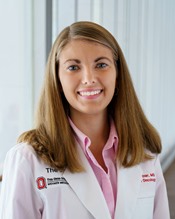Multidisciplinary Teamwork: Skills Required Success
C Ma1*, L Marks2*, A Cetnar3*, P Sandwall4*, (1) Fox Chase Cancer Center, Huntingdon Valley, PA, (2) University of North Carolina at Chapel Hill, Chapel Hill, NC, (3) The Ohio State University - James Cancer Hospital, Columbus, OH, (4) OhioHealth, Mansfield, OH
Presentations
TH-EF-206-0 (Thursday, 7/14/2022) 1:00 PM - 3:00 PM [Eastern Time (GMT-4)]
Room 206
Medical Physicists are critical members of a multi-disciplinary radiation oncology team. They bring unique skills that improve patient outcomes, particularly in technical areas. However, technical competence is necessary, but not sufficient. Physicists are expected to have a comprehensive understanding of radiation treatment and be good team players. Practicing good teamwork and establishing good professional relationships are critical for the success of medical physicists in the workplace. On the other hand, poor teamwork practice and poor relationship with the other team members would not only have negative impact on patient care but on the physicist’s career. Therefore, learning and sharing teamwork skills are important in professional development.
To practice good teamwork, medical physicists should be systems thinkers and take systems approach to teamwork. They should have a good understanding of medical physicist’s roles, the roles of the other members of the team, and know how to effectively fulfil roles “behind the scenes”. Furthermore, they should have effective communication skills as they are essential for successful teamwork. Communication is particularly important but may not be effortless for all physicists especially for those from different backgrounds. It is also important that medical physicists work closely with physicians and strive to understand the “Why?s” regarding physician’s medical decisions that impact physicist’s work. In this seminar, we will discuss teamwork skills from different perspectives from the lens of radiation oncology and focus on the issues and challenges in working in different environments and for members from different backgrounds.
Learning objectives:
1. Understand the importance of good teamwork and general teamwork skills
2. Understand how to effectively play a medical physicist’s role and communicate with other members in a radiation oncology team
3. Recognize unique experiences of medical physicists with different backgrounds and working environments
4. Understand the expectations from physicians and administrators
Handouts
- 175-63453-16291659-183176-1819886201.pdf (Ashley Cetnar)
- 175-63451-16291659-182237-991641727.pdf (Chang Ming Charlie Ma)
Keywords
Not Applicable / None Entered.
Taxonomy
Not Applicable / None Entered.
Contact Email






